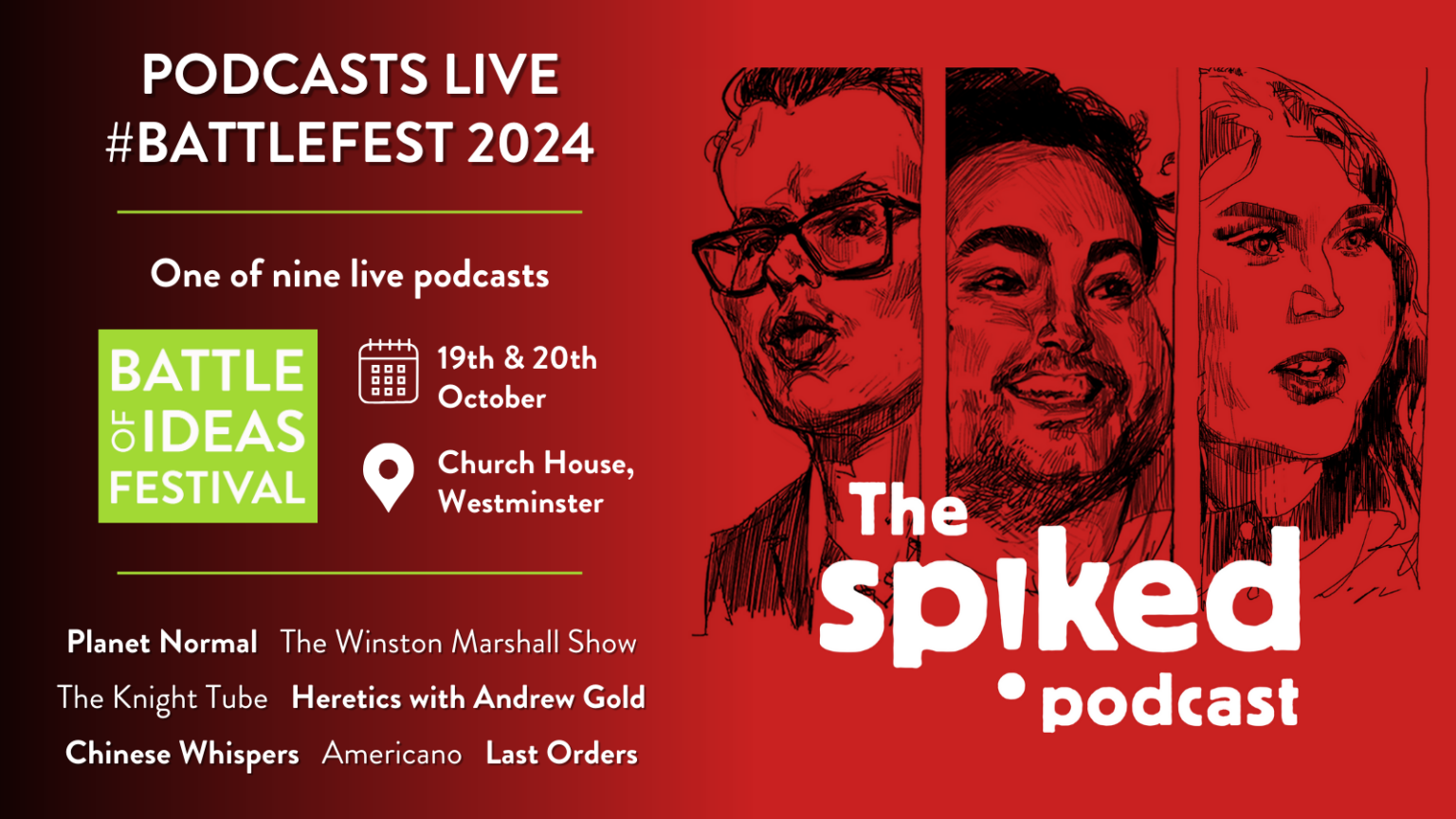Whoever wins, free speech loses
Harris, Walz and Trump have shown nothing but disdain for Americans’ First Amendment rights.

Want to read spiked ad-free? Become a spiked supporter.
US Democratic vice-presidential candidate Tim Walz has been rightly criticised for wrongly asserting that hate speech is not protected by the First Amendment in last week’s debate. But if he and Kamala Harris garner the votes of all Americans who believe that what they deem hateful speech is or should be regulated, they’ll likely win the White House in a landslide.
Public-opinion surveys consistently show that majorities of Americans support the principle but not the reality of free speech. ‘Americans love free speech… until they realise their opponents have it, too’, the Free Speech Center at Middle Tennessee State University recently observed. The right to engage in presumptively hateful or otherwise offensive speech – long restricted on college and university campuses – has long enjoyed only tenuous support off campus. A comprehensive 2017 free-speech survey by the Cato Institute found that 60 per cent of respondents agreed that hate speech should be legal; yet majorities of Republicans ‘favour stripping US citizenship from people who burn the American flag’, while majorities of Democrats ‘support a law that requires Americans use transgender people’s preferred gender pronouns’.
Majorities of Americans believe the First Amendment ‘goes too far’, the Foundation for Individual Rights and Expression (FIRE) recently found. ‘Americans are crying out for censorship’, FIRE laments. ‘Around 40 per cent trust the government “somewhat”, “very much”, or “completely” to make fair decisions about what speech is considered terrifying, intimidating, threatening, harassing, annoying, disturbing and indecent.’
‘You can’t yell fire in a crowded theatre’, people say, relying on the canard Tim Walz also cited in the debate. This century-old adage was coined by Supreme Court justice Oliver Wendell Holmes in Schenck v US, upholding the conviction of a peaceful anti-war protester under the First World War Espionage Act. Comparing the distribution of pamphlets urging opposition to the draft to yelling fire, falsely, in a crowded theatre, Holmes offered a justification for criminalising criticism of government policy. Schenck was finally overruled in 1968, in Brandenburg v Ohio. Still, even right-wing Supreme Court justice Samuel Alito recently used this misleading line about shouting fire in a crowded theatre as an example of unprotected speech.
So Tim Waltz is in good or bad company, depending on your point of view. Does Kamala Harris share his false, censorious assumptions about free speech? As a smart, educated lawyer I hope and suspect she knows that the court has not carved out hate-speech and political-advocacy exceptions to the First Amendment. But she has shown a willingness to use government power to regulate social media and she wants to shut down speech she dislikes. In her first run for president in 2019, Harris advocated taking down Donald Trump’s Twitter account. And while she’s now running toward the centre, no one should be surprised if she harbours or adopts progressive hostility toward presumptively discriminatory speech.
Meanwhile, Trump, who’s apt to pose as a free-speech warrior, wants to criminalise flag-burning, crack down on the rights of protesters (unless they support him) and ‘open up’ libel laws to enable lucrative lawsuits against unfriendly media, which he condemns as the ‘enemy of the people’. He called for the government to rescind ABC’s broadcast licence after his disastrous performance in the September presidential debate (which he naturally blamed on the moderators). And, if elected, he promises to imprison his political enemies, partly for the sins of using their speech rights to oppose him.
Right and left, with varying degrees of intensity, people in and out of office support restrictions on speech they deem dangerous, discriminatory or otherwise destructive. Sometimes Republicans and Democrats even agree on appropriate targets for censorship, especially when it aims to safeguard children. A bipartisan assortment of senators supports the Kids Online Protection Act (KOSA), which the Electronic Frontier Foundation argues would ‘greatly endanger the rights and safety of young people online’, while also burdening the rights of adults.
To oppose outlawing dangerous or destructive speech, vaguely defined, is not to deny that speech can have dangerous or destructive consequences. Nor is it to argue categorically against all speech restrictions. Your right to issue plausible, targeted threats of violence, for example, is not absolute. Tim Walz was not entirely wrong when he claimed that threats are not protected speech, though I suspect he would define actionable threats quite broadly.
But the consequences of whatever you consider bad speech are often indirect, cumulative and difficult to discern with any precision. Bad speech is a lot less likely to present clear and present dangers than bad laws aimed at regulating it. Bad speech and bad laws will likely characterise either a Trump or Harris administration. That is not a prescription for free-speech nihilism, but a mandate for considering lesser evils.
Wendy Kaminer is an author, a lawyer and a former national board member of the American Civil Liberties Union. Her books include A Fearful Freedom: Women’s Flight from Equality.
Picture by: Getty.
Celebrate 25 years of spiked!
A media ecosystem dominated by a handful of billionaire owners, bad actors spreading disinformation online and the rich and powerful trying to stop us publishing stories. But we have you on our side. help to fund our journalism and those who choose All-access digital enjoy exclusive extras:
- Unlimited articles in our app and ad-free reading on all devices
- Exclusive newsletter and far fewer asks for support
- Full access to the Guardian Feast app
If you can, please support us on a monthly basis and make a big impact in support of open, independent journalism. Thank you.






Comments
Want to join the conversation?
Only spiked supporters and patrons, who donate regularly to us, can comment on our articles.